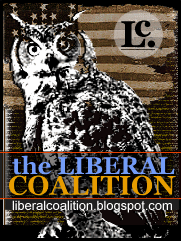The Godless Constitution Chapter 7 - Sunday Mail and the Christian Amendment
Today that question might center around whether or not a Christian pharmacist should be required to dispense drugs or medical products he disagrees with (such as birth control or the morning after pill.
In the early days of this country the question centered around delivering the mail on Sunday. Should post-masters and postal workers, who were assumed to be Christian, be required to work on their Sabbath. What did the government of the United State's choice to ignore the Sabbath Day say about our relationship with God?
But of course there were good reasons for operating on Sunday. For small far flung rural communities, coming into town to attend services was a struggle; why compound the struggle by requiring a separate trip to get the mail. And travelers who used the mail coaches would doubtless seek other transportation options if forced to rest on the Sabbath. And people in the Western part of the country at that time wanted up to the date information in order to make their business decisions.
The authors point out that this debate also centered on the liberal idea of giving people a day off. Forcing the post office to close on Sunday may sound bad, but forcing people to work 7 days a week doesn't sound much better.
In this case the necessities of keeping the mail running won out until such necessities were alleviated by the development of the telegram and the railways.
The chapter also covers the Christian Amendment, which was an attempt on the part of the some to add an amendment to the constitution clarifying that this was a Christian nation. This issue sprang up during the Civil War, when emotions were naturally pretty high. In some versions this would have re-written the preamble, as follows.
We, the people of the United States, humbly acknowledging Almighty God as the source of all authority and power in civil government, The Lord Jesus Christ as the Governor among the Nations, and His revealed will as of supreme authority, in order to constitute a Christian government . . . do ordain and establish this Constitution for the United States.Obviously many non-Christians and even smaller Christian groups (like the Seventh-Day Adventists) saw this amendment as a threat to their religious freedom. And both President Lincoln and the Congress felt no particular haste in addressing this issue, so it was allowed to die a quiet death.





